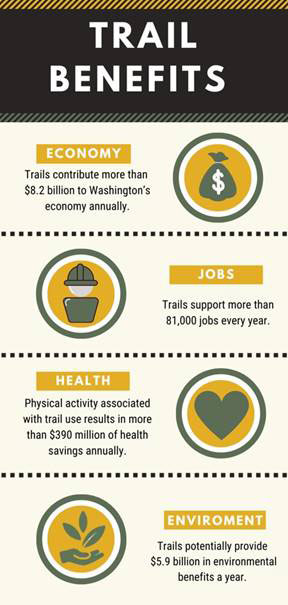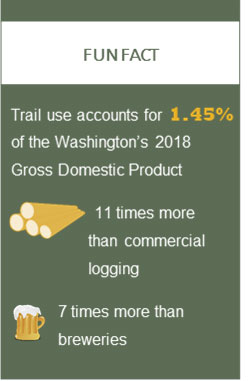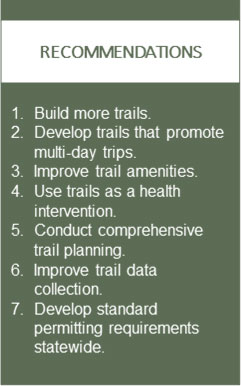The reports recommend using trails as a health intervention strategy by improving access and decreasing barriers to trails for poor communities.
The reports also recommend improving the state’s trail system by encouraging new trail development in strategic areas, such as where there are too few trails or overcrowded trails, and by encouraging trail development that promotes overnight trips, which generate more money because people are spending multiple days on trails. The reports also recommend improving trail amenities, such as parking and bathrooms, to attract more users.
In addition, the reports recommend conducting comprehensive planning for trails in anticipation of more people living in Washington, improving collection of data on trail use and developing a standard permitting process statewide to make it easier to build trails.
“People are getting outside more than ever, but decades of underinvestment have put Washington’s trail system under significant strain,” Simmons said. “Washington Trails Association is working to ensure trails can meet the growing demands of hikers today, tomorrow and forever. We believe these studies are a good first step in recognizing the value of trails and the need to invest in them at the level they deserve.”
Created in 1964, the Recreation and Conservation Office provides statewide leadership and funding to protect and improve the best of Washington’s natural and outdoor recreation resources.
Washington Trails Association is a nonprofit that mobilizes hikers and everyone who loves the outdoors, to explore, steward and champion public lands and trails.
Washington Bikes advocates for bicyclists and a more bicycle-friendly Washington.




